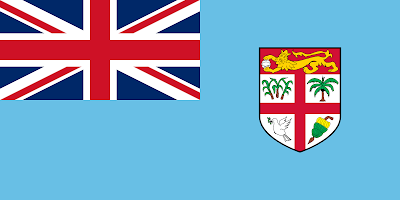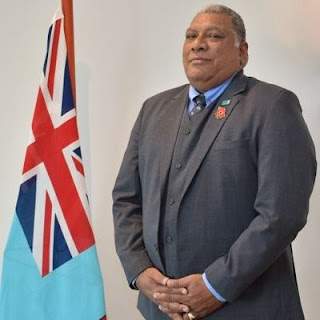 Malolo Island
Malolo Island Member Since 1973
Partner Ministry/Organization Ministry of Education and Public Service Commission Recent Programs Held 2019: Greening TVET for Sustainable Development (Sep 16-20) 2018: In-Country Program on Quality Assurance System through Results-Based Monitoring and Evaluation Management Systems for TVET Institutions and Educational System (Sep 24-28) 2017: In-Country Program on Generic and Life Skills for Lifelong Teaching and Learning in TVET (May 15-19) 2016: In-Country Program on TVET Capacity Development Programme, organized by TAFE and UNESCO-UNEVOC (May 16-24) 2015: In-Country Program on Industry-Academia Collaborations and Partnerships (Apr 20-24) 2013: (1) Special In-Country Program and National Seminar on Champion Leaders’ Development on TVET Skills for Poverty Alleviation (Dec 2-6); (2) In-Country Program on Web-based Teaching and Learning System in TVET (Apr 22-26) 2012: In-Country Program on Developing E-Learning Contents in TVET (Apr 10-14) Address of Embassy/Consulate in Manila Fijian Honorary Consulate in Manila, Philippines Executive Offices, JMP Bldg., Jose Cruz St., Brgy. Ugong, Pasig City, Manila, Philippines |

Official Name
Republic of Fiji
Land Area
18,274 km2 (7,056 sq mi) (156th)
Population
902,906 (161st)
Capital
Suva (est. pop. 77,366)
Largest Cities
Lautoka (est. pop. 52,500)
Nadi (est. pop. 42,284)
Labasa (est. pop. 27,949)
Ba (est. pop. 14,596)
Nadi (est. pop. 42,284)
Labasa (est. pop. 27,949)
Ba (est. pop. 14,596)
Country Borders
None
Religion/s
Methodist, Roman Catholic, Hinduism
Major Languages
English, Fijian, Hindi
Demonym
Fijians
National Holidays
10 October 1970 (independence of Fiji from Britain)
Education Basic Facts
No. of Years of Primary Education
8
Major Universities
The University of the South Pacific, Fiji National University, The University of Fiji
Primary School Enrollment (Total)
116.46% (UNESCO, 2019)
Tertiary School Enrollment (Total)
53.5% (UNESCO, 2019)
Ministry/ Ministries Supervising Education
Ministry of Education
Education as % of GDP
5.1 % (UNESCO, 2019)
TVET
Agency Handling TVET
Ministry of Education, Ministry of Agriculture
Formal TVET System (Source: UNESCO-UNEVOC)
Fijian Law ensures all children, without bias, have access to education under the responsibility of the MOE. The government has drawn up educational programs such as the formulation of policies that will cater the needs of the students, raising the quality of relevant education, and making students less dependent on the labor market but capable of venturing into self-employment after completion of their course.
School based TVET systems in Fiji are looked after by the Ministry of Education (MOE), both in formal academic and post-secondary levels. The Technical College of Fiji (TCF), with 12 campuses all over Fiji, is a stand-alone technical institution managed by the MOE. Monfort Boys Town, although a private vocational institute, receives annual funding from the MOE.
The Fiji National University provides a range of TVET programs such as Agriculture, Engineering, Construction, Tourism & Hospitality, Housekeeping Services & Accommodation, Cookery & Baking, and Forestry among others. These programs are offered at certificate, diploma, and degree levels. The institution is a self-governing body but receives large portion of its annual grant from the Fiji Government.
Private TVET institutions like APTECH Computer School, are sectioned under the Ministry of Education for registration and recognition certification. Other private TVET providers with agriculture based-training such as Tutu Vocational Centre are supported and funded by the Ministry of Agriculture. The Ministry of Forestry provides forestry skills training at the Forestry School in Colo-i-Suva named Timber Industry Training Centre (TITC). They also provide short “upskilling” training courses for those already working in the forestry/timber industry. USP’s School of Education provides TVET teachers training programs at the certificate, diploma and degree levels for those who wish to pursue teaching as a career. These programs provide technology-based knowledge rather than industry-based training. USP is managed and funded by 12 Pacific island countries however the Fijian Government contributes a large portion of the USP Fund.
The tables below show the structure of Formal TVET (Table 1) and statistics for students enrolled in Formal TVET in 2014 through to 2017 (Table 2).
Table 1: Structure of Formal TVET

Note. Reprinted from National Vocational Qualifications and Certifications System of Maldives, by Riyaz. Retrieved from National Vocational Qualification Systems of CPSC Member Countries 2017, CPSC.

Note. Reprinted from National Vocational Qualifications and Certifications System of Maldives, by Riyaz. Retrieved from National Vocational Qualification Systems of CPSC Member Countries 2017, CPSC.
Table 2: Students Enrolment in Formal TVET

Note. Reprinted from National Vocational Qualifications and Certifications System of Maldives, by Riyaz. Retrieved from National Vocational Qualification Systems of CPSC Member Countries 2017, CPSC.

Note. Reprinted from National Vocational Qualifications and Certifications System of Maldives, by Riyaz. Retrieved from National Vocational Qualification Systems of CPSC Member Countries 2017, CPSC.
In an effort to promote and improve the image of TVET, the TVET section was renamed Technology & Employment Skills Training (TEST) in 2013, as per the MOE. Also implemented by the MOE is the Skills Training For Employment (STFE) policy, for improved delivery of Technical and Vocational Skills programs in private institutions, non formal training providers, traditional and resource owners, relevant ministries and tertiary institutions to ensure quality standards, recognition and value of the program as an important component of training, human resource development and employment throughout Fiji.
The Pacific Regional Initiatives for the Delivery of Basic Education (PRIDE) is a Project jointly funded by the EU and New Zealand to assist the relevant authorities in the improvement of TVET in 15 South Pacific nations, including Fiji.
Qualification Framework
The Fiji Qualification Framework is devised by the Fiji Higher Education Commission (FHEC), which operates under the MOE. The FHEC are the primary regulator of quality assurance, national qualification framework, standards, certification, accreditation, acts, policy, funding and training in Fiji. All TVET providers are sanctioned under the commission.
The FQF has three (3) key education sectors:
- School Sector
- TVET Sector
- Higher Education Sector

Figure 1. The National Qualifications Framework of Fiji
Note. Figure from National Vocational Qualifications and Certifications System of Maldives, by Riyaz. Retrieved from National Vocational Qualification Systems of CPSC Member Countries 2017, CPSC.
Levels of NVQS
The Fiji Qualifications Framework (FQF) has 10 levels:
- Level 1: Certificate 1
- Level 2: Certificate 2
- Level 3: Certificate 3
- Level 4: Certificate 4
- Level 5: Diploma
- Level 6: Advanced Diploma
- Level 7: Bachelor’s Degree
- Level 8: Post Graduate
- Level 9: Master Degree
- Level 10: Doctorate Degree
TVET Financing
Overall the TVET sector draws the majority of its funding from three sources – annual budget allocations from MoF, grant aid-in-kind from development partners, and tuition fees.
Table 3. Indicative funding of TVET provision in Fiji, 2012-13 (FJ$ ‘000s)

Note. Reprinted from Australian Council for Educational Research by Maglen et al. Retrieved from https://research.acer.edu.au/cgi/viewcontent.cgi?article=1020&context=transitions_misc
FNU is by far the largest TVET institution in terms of funding received in Fiji, and is able to draw its funding from a broader range of sources than can other, smaller, national and regional providers. One such source the university can draw on, the national training levy grant scheme. The gross amount annually raised by the university from this source is estimated at around FJ$12 million.
Whilst MoE vocational schools can and do charge tuition fees (The only major source of revenue outside of MoF budget allocations and grant aid-in-kind), other line ministry training programs are tuition free, and for them the only sources of finance are the annual MoF allocations.
Grant aid-in-kind from Fiji’s development partners comes principally from Australia, mostly in the form of the support given to the Fijian operations of APTC, but also in some scholarship assistance administered through PSC.

Figure 2. Funding of TVET, by source, 2012-13
Note. Figure from Australian Council for Educational Research by Maglen et al. Retrieved from https://research.acer.edu.au/cgi/viewcontent.cgi?article=1020&context=transitions_misc
TVET providers with agriculture based-training such as Tutu Vocational Centre are supported and funded by the Ministry of Agriculture.
References:
- About the PRIDE Project. (2018, January 02). Retrieved August 16, 2018, from https://www.usp.ac.fj/index.php?id=pride_home0
- Fiji. (n.d.). Retrieved August 16, 2018, from http://education.stateuniversity.com/pages/466/Fiji.html
- Maglen, L., Wall, M. W., & Manaini, R. (2015). Research into the financing of technical and vocational education and training (TVET) in the Pacific : Fiji : Country report. Retrieved August 20, 2018, from https://research.acer.edu.au/cgi/viewcontent.cgi?article=1020&context=transitions_misc
- Rakona, M. (2017) National Vocational Qualifications and Certifications System of Fiji. In National Vocational Qualification Systems of CPSC Member Countries(pp. 85-98). Manila: CPSC. doi:978-971-8557-98-3
- TEST. (n.d.). Retrieved August 16, 2018, from http://www.education.gov.fj/index.php/g/moe-departments/technical-vocational-education-training
- Tuisawau, A. S. (2009). Reorienting TVET Policy Towards Education for Sustainable Development. Retrieved August 16, 2018.
GDP
$4,533,883.78 (2020)
GDP Per Capita
$5,057.6 (2020)
Currency
Fijian Dollar (FJD) = 100 cents
Major Exports
Water (16.2% = $168M), Refined Petroleum (7.95% = $82.9M), Non-fillet Frozen Fish (7.81% = $81.4M), Raw Sugar (5.73% = $59.7M), and Gold (4.86% = $50.7M)
Major Imports
Refined Petroleum (21.7% = $612M), Planes, Helicopters, and/or Spacecraft (11% = $310M), Cars (2.03% = $57.2M), Wheat (1.74% = $49.1M), and Broadcasting Equipment (1.53% = $43M)
Major Industries
Sugar, garments, gold, timber, fish, molasses, coconut oil
Major Export Partners
United States (28.9% = $301M), Australia (13.8% = $144M), New Zealand (7.36% = $76.7M), Japan (5.92% = $61.7M), and Tonga (5.65% = $58.9M)
Major Import Partners
Singapore (17.8% = $502M), China (13.1% = $369M), Australia (13.1% = $369M), New Zealand (11.3% = $318M), and France (11% = $309M)
Foreign Exchange Reserves
$ 1.043 billion (2019)
Ease of Doing Business Rank
102nd (out of 190) (2019)
Inflation
-1.8%
Population below Poverty Line
29.9% (2019)
Gini Coefficient
36.7% (2013)
Competitiveness Rank
not reported
Employment Rate
53.45% (2020)
Unemployment Rate
13.4% (2020)

Type of Government
Unitary parliamentary constitutional republic
Head of State
Ratu Wiliame Katonivere (President)
Head of Government
Frank Bainimarama (Prime Minister)
Legislating Body/Bodies
Parliament of Fiji
 Image by Paul Harris / Getty Images
Image by Paul Harris / Getty Images
Time zone
UTC + 12:00
Human Development Index
0.743 (high, 93rd out of 189) (2019)
Literacy Rate
not reported
% of people with internet access
70.5% (approx. 634.1 thousand of the population) (Kemp, 2021)
Life Expectancy
Total: 67 years (Male: 65 years; Female: 69 years) (2019)
Doctors per capita
0.9 Physicians per 1,000 population (2015); and 3.96 nurses & midwives per 1,000 population (2019)
Drives on the
Left
Calling code
+679
ISO 3166 code
FJ
Internet TLD
.fj







